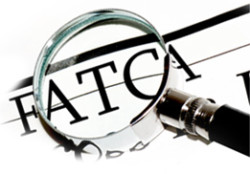5 Things Americans need to know about FATCA
Posted on April 29, 2014Yes, tax isn’t fun. But it is important. We like writing about tax as much most people like reading about it, but there are some things you must know. We have condensed the hit list to a few points.
Background
We like Obama and his wonderful speeches but his administration is responsible for The Foreign Account Tax Compliance Act called FATCA*. This tax legislation is likely to cause much paperwork for the average expatriate and was passed in the United States in 2010. FATCA is intended to prevent “U.S. persons” from evading U.S. tax using financial accounts held outside of the United States. They probably had people like Mitt Romney in mind much more than the average American on a three stint in China, but, here we stand.
So let’s get into it.
FATCA implementation begins July 1, 2014.
Who is impacted by FATCA?
Non-U.S. (“foreign”) financial Institutions will need to identify and report all “financial accounts” for specified U.S. persons and certain U.S. owners of non-U.S. entities. Financial accounts include bank, brokerage and other custodial accounts.
What is the definition of a U.S. person?
Under U.S. tax law, you are considered a U.S. person if you are:
- A citizen of the U.S. (including an individual born in the U.S., but resident in Canada or another country who has not renounced their U.S. citizenship.)
- A permanent resident of the U.S.
- A U.S. green card holder
You may also be considered a U.S. person if you spend considerable time in the U.S. in one year or over a period of years. U.S. corporations, partnerships, estates and trusts are also U.S. persons.
Is every Financial Institution impacted by FATCA?
Every non-U.S. (“foreign”) financial institution globally must comply with FATCA or potentially be subject to a 30% withholding tax on all U.S source income. We’ve heard that many non American operations have blanket banned Americans from having accounts or investments with them to protect from compliance problems. We’d love to hear your comments if you have had any experience like this.
What does this mean to me as a US citizen?
As long as you have been reporting your offshore bank accounts and investments there will be no change. If you have not been disclosing these accounts you should contact your accountant to determine what actions should be necessary to avoid substantial penalties.
See, that wasn’t so painful, was it?
*Not to be confused with FACTA which is for the Foreign Corrupt Practices Act.
Bill Longstreet has been a financial advisor since 2003 and prior to this were a institutional business development director, specializing in fixed income and foreign exchange markets. Bill has a Master in Business Administration with a concentration in Finance (1999) from the Olin School of Business at Washington University in St. Louis and am a candidate for the CFP (Certificate Financial Planner) qualification. He also holds a Bachelor of Arts with a Major in Economics from Denison University. In his last position before joint Caterer Goodman oversaw $350 million in client funds across a range of currencies and risks profiles.
Tags: American, Bill, Bill Longstreet, Caterer Goodman, China Expat, China Expat Money, FATCA, Financial Advisor, Foreign Account Tax Compliance Act, Investment, Shanghai, Tax, U.S., US
Categorised in: Financial Advice, Tax Advice


